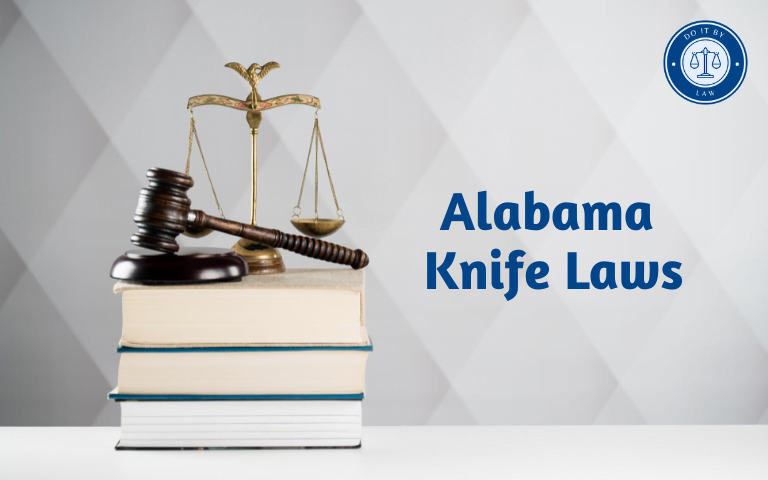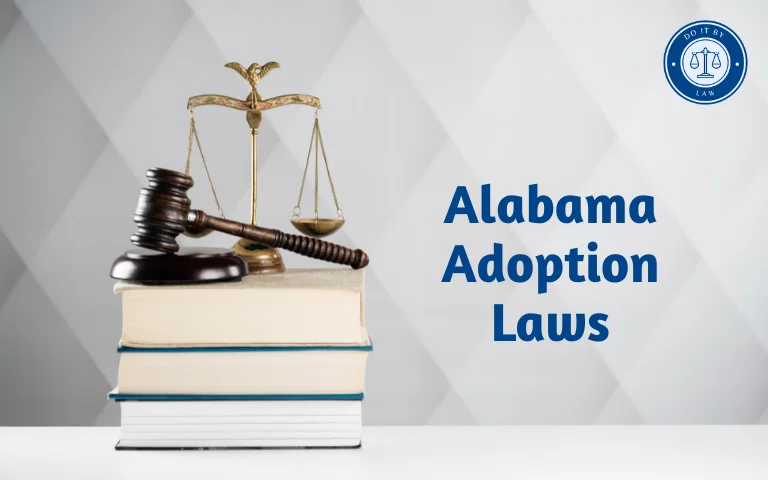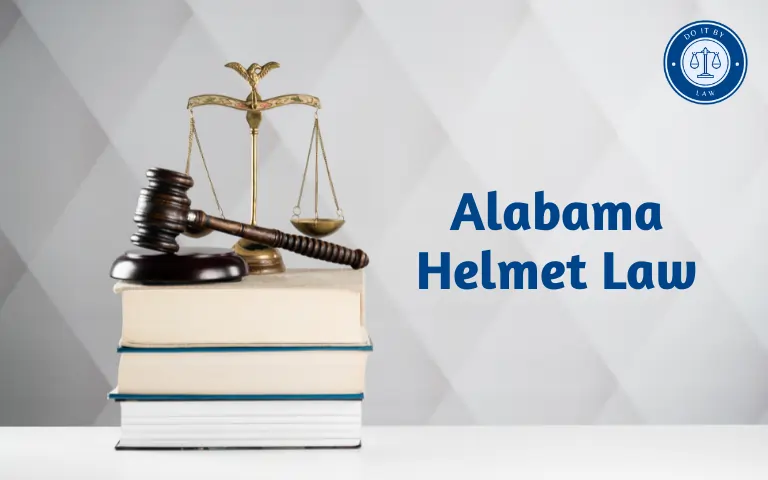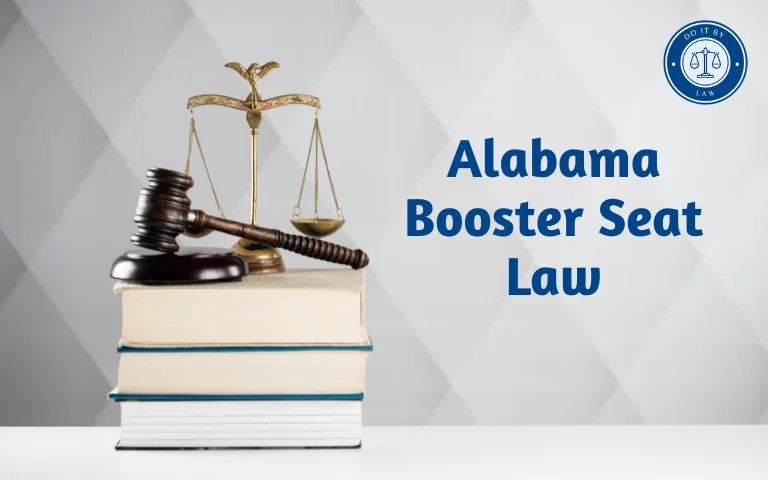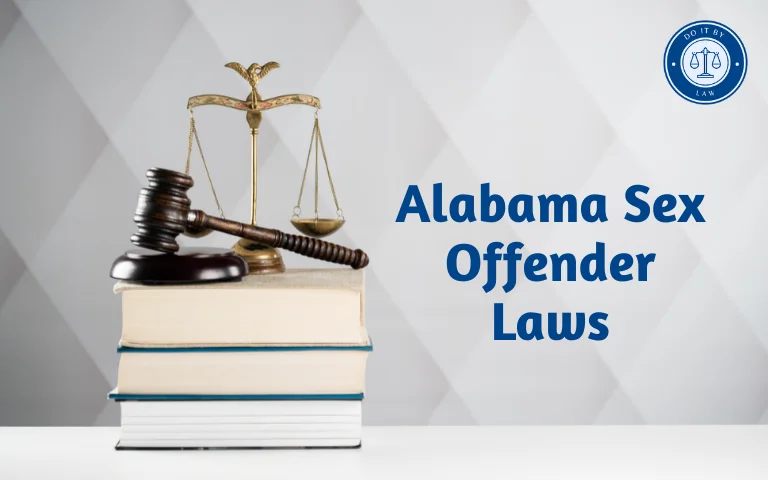Alabama Knife Laws: What You Need to Know (2023)
Knife laws in Alabama regulate the ownership, use, and carry of knives in the state. Like most states, Alabama knife laws differentiate between various types of knives and blades. Understanding the specifics of these laws is important for all Alabama residents so you can legally own and carry the knives you need.
This comprehensive guide provides an overview of Alabama knife law, including key statutes, definitions, exceptions, restrictions, and more.
When Were Alabama Knife Laws Enacted?
Alabama enacted its main knife laws in 1852 as part of the state’s criminal code statutes. Additional relevant laws have been added over the years, with the most recent updates in 2013.
Alabama knife laws aim to promote public safety by restricting dangerous knives like daggers and bowie knives in public places while allowing law-abiding citizens to own and use knives responsibly. The laws try to strike a balance between personal liberty and preventing violence and crime.
Who Do Alabama Knife Laws Apply To?
Alabama knife laws apply to all individuals within the state, whether residents or visitors. They regulate knife ownership, sales, manufacturing, and carrying.
The laws apply no matter your age, occupation, criminal history, or other factors. Ignorance of the law does not exempt you from following Alabama knife statutes.
Some key groups like law enforcement officers and armed forces members have special exemptions or allowances under certain laws which will be covered below.
Key Provisions of Alabama Knife Law
Alabama knife laws primarily derive from the state criminal code at Title 13A. Here are some key statutes:
Definitions
- Deadly weapon: Anything manifestly designed, made, or adapted to inflict death or serious physical injury. Knives are typically considered deadly weapons under Alabama law (Section 13A-1-2(7)).
- Carry: On one person or in a vehicle or vessel. The term does not apply to sending by mail or a common carrier (Section 13A-1-2(3)).
- Concealed: The weapon is carried in such a manner as to not be discernible by ordinary observation (Section 13A-1-2(3)).
- Knife: Any sharp or pointed cutting instrument consisting of a blade fastened to a handle. Knives can have fixed or folding blades (Section 13A-1-2(11)).
General Restrictions
- It is illegal for anyone to carry a bowie knife or dagger concealed on or about their person (Section 13A-11-50).
- It is illegal for a person to sell, furnish, or give away a bowie knife or dagger to a minor (Section 13A-11-53).
- It is illegal for any person to carry a deadly weapon with the intent or purpose of assaulting another person (Section 13A-11-52).
Exceptions and Allowances
- Law enforcement officers and members of the armed forces may carry knives concealed when in the discharge of their official duties (Section 13A-11-55).
- The law does not apply to an ordinary pocket knife carried in a closed position in one’s pocket or purse (Section 13A-11-55).
- It is legal to carry a knife for hunting, fishing, camping, water sports, or other lawful recreational uses (Section 13A-11-55).
- The restrictions on bowie knives and daggers do not apply to those kept at one’s home or place of business (Section 13A-11-54).
Switchblades, Gravity Knives, and Ballistic Knives
Alabama prohibits the commercial manufacture, possession, sale, or advertisement of a switchblade knife, gravity knife, or ballistic knife (Section 13A-11-63).
However, it is legal for an individual (not a commercial entity) to possess these types of knives in their home or place of business.
Knife Length Restrictions
Alabama does not impose a specific legal knife length limit. However, longer knives may fall under the state’s definition of a prohibited bowie knife or dagger (see next section).
In practice, knives with blades under 4-5 inches are less likely to attract scrutiny than longer knives, but legality depends more on how and where the knife is carried.
Defining Bowie Knives, Daggers, and Dangerous Knives
Alabama law does not provide an exact definition or blade length requirement for what constitutes an illegal bowie knife or dagger. However, court rulings and case law help shed light on interpretations:
- Bowie knives generally refer to large fixed-blade knives designed for use as weapons in combat and self-defense. Typical features include an 8+ inch blade with a clip point, crossguard, and finger grip.
- Daggers typically have a sharp, double-edged blade designed primarily for stabbing or thrusting. Many daggers have narrow blades under 3 inches, but length alone does not define them.
- Double-edged knives over 5 inches in length are more likely to be deemed dangerous daggers, while smaller pocket and utility knives are exempt.
- factors like carrying concealed, intent to harm, design, and non-utility use also help determine if a knife is deemed dangerous and prohibited.
Exceptions for Antique Bowie Knives and Daggers
Alabama’s concealed carry restrictions do not apply to bowie knives and daggers that are over 50 years old or considered valuable collectible items (Section 13A-11-55). This allows for the possession of antique or display-only bowie knives.
However, care must be taken not to carry such a knife concealed on your person outside of lawful transport to a display or collection venue. The knife cannot be carried with intent to harm others or for any unlawful purpose.
Alabama Concealed Carry Law: What You Need to Know
Penalties for Violating Alabama Knife Laws
The criminal penalties for violating Alabama knife laws range from fines to imprisonment:
- Carrying a bowie knife or dagger concealed on one’s person is a Class A misdemeanor punishable by up to 1 year in jail and a fine of up to $6,000 (Section 13A-11-50).
- Selling or furnishing a bowie knife or dagger to a minor is a Class A misdemeanor (Section 13A-11-53).
- Carrying a deadly weapon such as a knife with intent to harm is a Class C felony punishable by 1 to 10 years imprisonment (Section 13A-11-52).
- Violating the switchblade and ballistic knife restrictions results in a civil fine of up to $500 for a first offense, and up to $1,000 for subsequent offenses (Section 13A-11-63).
In determining penalties, factors like criminal history, type of knife, location, intent, and actual harm caused will be considered.
Recent and Proposed Changes to Alabama Knife Laws
In 2013, Alabama repealed most of its previous knife preemption laws, allowing local governments more leeway to regulate knives. However, many municipalities have not enacted stricter local knife laws.
In 2022, a new bill was proposed (HB102) that would have again prohibited local knife laws more restrictive than state law. However, the bill failed to pass into law.
No significant changes to main state knife laws have occurred since their initial passage. While groups like knife rights advocates continue to lobby for relaxed restrictions, major reform has been elusive.
Going forward, evolving court precedents and case law will likely have more impact on defining Alabama’s knife laws than legislation. Most changes come from new interpretations rather than amended statutes.
Controversies and Challenges Related to Alabama Knife Laws
Alabama’s knife laws have faced criticism and legal challenges on grounds of being vague, confusing, and overly broad. Common issues include:
- The lack of clear definitions for illegal bowie knives and daggers causes uncertainty about what is legal vs prohibited.
- Bans on concealed carry of bowies and daggers could violate the Second Amendment right to bear arms for self-defense.
- Categorical bans on certain knife types like switchblades and ballistic knives could be considered unconstitutional.
- Citizens traveling through Alabama can unwittingly violate laws prohibiting certain common knives.
Despite these complaints, most of Alabama’s knife statutes have survived legal scrutiny thus far. However, more court cases and legislative attempts to refine the language of the laws are likely in the coming years.
Conclusion
Alabama knife laws aim to enhance public safety by placing regulations on the possession and carrying of dangerous knives and blades. However, the laws also seek to avoid imposing unreasonable burdens on citizens.
While Alabama has relatively strict laws on issues like concealed carry of bowie knives and daggers, ownership and lawful use of most common folding pocket knives and utility blades is exempt from restrictions. Always adhere to the laws prohibiting concealed carry with intent to harm others or breach the peace.
Familiarize yourself with all state and local knife laws before buying, selling, carrying, or transporting blades in Alabama. Use common sense and exercise proper precautions when possessing knives in public areas.
Frequently Asked Questions
References and Law Sources
- Alabama Criminal Code Title 13A – Review Chapters 1, 6, and 11 for main knife law statutes
- Ala. Code Section 13A-11-50 – Bowie Knife Violations
- Ala. Code Section 13A-11-55 – Lawful Uses and Exceptions
- Ala. Code Section 13A-11-63 – Switchblade Ban
- Ala. Code Section 13A-1-2 – Definitions

